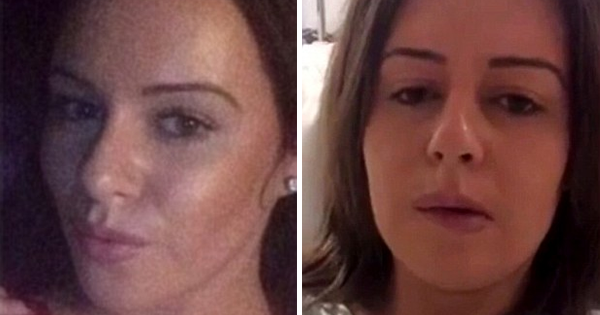It’s important to know the warning signs for a stroke. Demi Rump, 23 knew them all.

And when she collapsed at work after her arms and leg went numb, she knew she was experiencing signs of a stroke.
She went to the emergency room, and by the time she got there she was unable to speak.
However, doctors almost sent her home, saying that she must be stressed and that there was nothing really wrong with her.
“The doctors were convinced I was stressed but that’s not me. I don’t stress over anything so I knew that wasn’t the case.”
However, while she was there, her mouth started to droop. It was only then that doctors believed she was having a stroke.

“I was so upset when I realized I was suffering a stroke, I have no idea how or why this happened. I am so grateful I was finally diagnosed but it was a hugs shock as I thought strokes only happened to older people.”
While she was getting treated, she took some footage of her face.

“I was really confused at the time as my brain wasn’t functioning properly, but I wanted to see how I looked and how the stroke was affecting my face.”
She was left unable to walk on her own for three weeks after the procedure. And while she’s almost fully recovered, she still suffers headaches and short term memory loss.
Doctors don’t know why she came down with a stroke.
“I don’t smoke,” says Demi. “I don’t drink a lot and I’ve always been active, so I have no idea why I had a stroke.”
Now, she’s advocating for people to be aware that you can have a stroke at any age.

“I hope reading my story shows others that it doesn’t matter how old you are, you must look out for warning signs,” she says. “Doctors also need to not dismiss people based on their age. If I was a pensioner my symptoms would never had been dismissed as stress.”
Professor Pankaj Sharma, an advisor at Different Strokes, a charity supporting young stroke sufferers, noted that “Around 25 percent of all strokes occur in younger people (under 65 years) and this is commonly misdiagnosed as most clinicians do not immediately think of this disease in this age group. This ‘blind spot’ for stroke is, in my view, a form of reverse age discrimination and must be tackled.”





